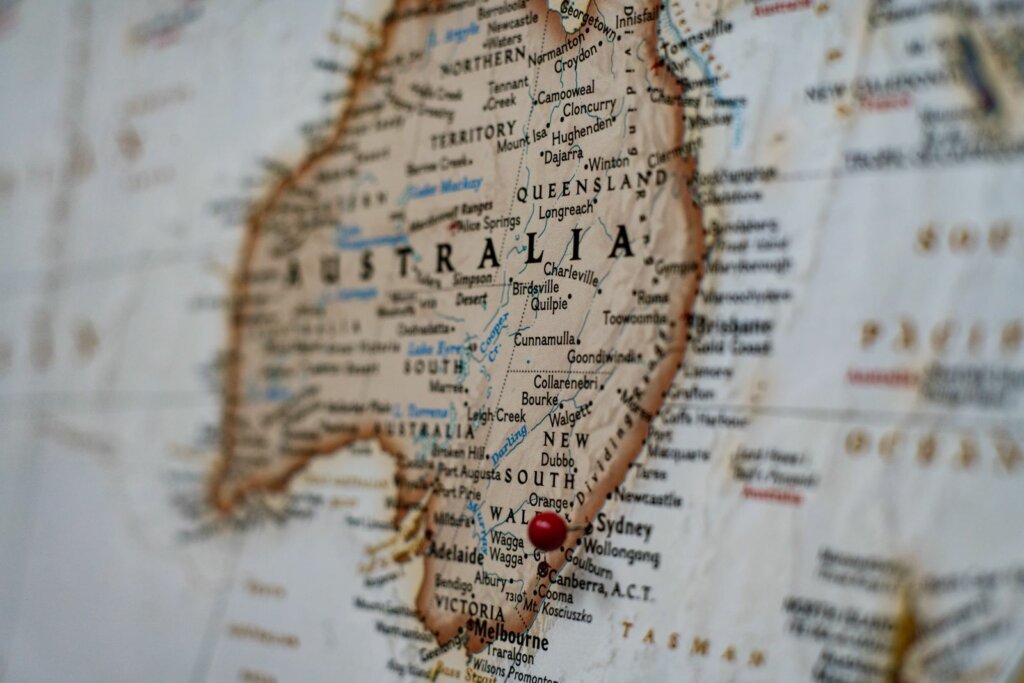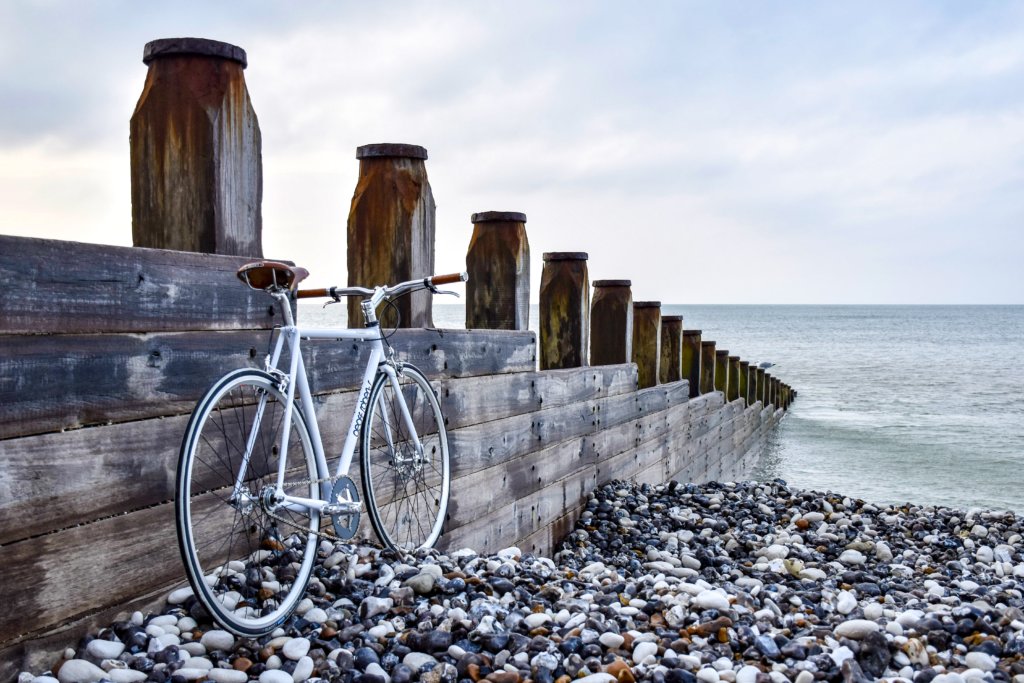One of the most striking things for me about being in Australia is not the accent or driving on the left side of the road, it’s their take on security. Going through airport security for domestic flights is a breeze – you leave your shoes on and there aren’t any restrictions on liquids. You’re required to remove your electronics but that’s it. Done.
When I visited the National Gallery of Victoria, I was confused because not only is the art museum free (except for certain exhibitions), there is no security check. Nobody rifled through my bag, and no one yelled at me for wearing my backpack on my back instead of on one shoulder. In contrast, the Met in New York specifically mentions both of those things on its website. Australians aren’t particularly worried about weapons because they don’t need to be.
Shortly after a mass shooting in 1996, elected officials banned semi-automatic and other military-style weapons across the country. On top of that, the federal government prohibited their import and lawmakers introduced a generous nationwide gun buyback program, funded with a Medicare tax. Many years later, lawmakers added a new National Handgun Agreement, a separate buyback act, and a reformulated gun trafficking policy to their legislative arsenal.

I wish the U.S. was more like Australia in some ways. Photo by Joey Csunyo on Unsplash
The result? Gun violence declined to a vast degree. In 2014, the latest year for which final statistics are available, Australia’s murder rate fell to less than 1 killing per 100,000 people. In contrast, the murder rate in the U.S. in 2020 was 6.5 killings per 100,000 people. And just in case you didn’t know, we had 647 mass shootings in 2022 alone.
People remind me the risk of being a mass shooting victim is low, statistically speaking, but you know what’s not low? The constant vigilance we live with as a society. There are reminders on public transit to say something if you see something. There are extensive security measures at the airport. We search people’s bags in certain public spaces and we have active shooter drills in schools. In other words, Americans are always on high alert for an attack, whether they’re aware of it or not.
Coming to Australia, I feel myself relax in a way I’ve never been able to the U.S. Yes, I could be stabbed, but frankly, I’d rather confront a knife than a gun. Why do we cling to our second amendment rights so fiercely? Some act as if the second amendment is a bulwark against tyranny when in reality, we’re already in a plutocracy or the reign of the rich.
The founding fathers weren’t some demigods who knew the best course of action for all of eternity. They were flawed human beings and their ideas about gun ownership are no longer relevant nearly 250 years later. How could they be? For context, at the time the founding fathers drafted the Bill of Rights, they couldn’t even conceive of indoor plumbing. Why are we still hanging our hats on their outdated ideas?
My spiritual teacher says, “Social ideals and systems should be formulated after considering the time, place, and person as well as the all-round progress of the society. It may be that something which is quite useful for a particular time, place, and person is totally worthless for a different time, place, and person. Society is not a static entity, but a dynamic one.”
Society is a dynamic entity, which means we can say, “You know what? We’re safer with fewer guns. Who cares what some long-dead white dudes said 250 years ago? Their ideas are no longer useful.” It can be done; we have a modern example in Australia and I have to tell you, I’m a fan.
I dream of a world where we remember society is a dynamic entity, which means recognizing ideas outlive their usefulness. A world where we remember we don’t have to cling to outdated beliefs. A world where we let Australia serve as an example of how to handle gun violence.
Another world is not only possible, it’s probable.
Let’s talk about slavery and guns. I know! The light and easy topics! The other day, an infographic swirled around facebook showing American slavery lasted for 246 years and segregation lasted for 89. In the scheme of things, the years since the end of segregation are minuscule. It’s hardly any time at all. Generation after generation after generation was born into slavery. I’m sure at the time it seemed like slavery would last forever, and for many it did. They spent their entire lives as slaves. And now for the modern-day person, we look back and shake our heads, saying, “I can’t believe it took that long.” I think the same will be true with gun violence.
Christopher Reeve said, “So many of our dreams at first seem impossible, then they seem improbable, and then, when we summon the will, they soon become inevitable.” I won’t say I’m confident in the inevitability of gun control, but I’d like to be. I think about the generations of slaves who thought for sure slavery would last forever and still took steps to fight against it. The tireless men and women who said, “No, we won’t stand for this,” and then did something. It took a loooong time and obviously we still have problems with racism in this country, but things changed. That gives me hope.
What also gives me hope are the teenagers from Parkland, Fla., who are saying, “We will not stand for this.” On the 17th, they held a rally in protest. Emma Gonzalez, a student from the Marjory Stoneman Douglas High School, the site of the most recent school shooting, gave a speech. She called for new gun restrictions, blasting President Trump, the National Rifle Association, and lawmakers for what she called their self-serving and ultimately hollow responses to the shooting. Many students held signs demanding new action on gun control. “My friend died for what?” read one sign. “Stop gun violence now,” read another.
Also, the organizers behind the Women’s March have called for a national school walkout next month to protest what they say is congress’s tacit response to mass shootings. The walkout on March 14 is set to last 17 minutes, and will seek to pressure lawmakers “to do more than tweet thoughts and prayers in response to the gun violence plaguing our schools and neighborhoods,” the group said on its website.
I don’t know if these actions will accomplish anything. I don’t know if congress will immediately pass stricter gun regulations, or if they’ll heed the siren’s song of gun lobby money. We could have another 50 years of mass shootings before us, or not. What I do know is change is inevitable. And I also know change doesn’t just happen, we have to push for it.
Frederick Douglass said, “I prayed for freedom for 20 years, but received no answer until I prayed with my legs.” I’m with you Frederick. Let’s pray with our legs. Eventually, inevitably, things will be different, and our descendants will look back at this time, shake their heads, and say, “I can’t believe it took that long.”
I dream of a world where we remember things can change, do change, and will change. A world where we remember the veracity of Christopher Reeve’s quote, that after we summon the will, certain changes are inevitable. I dream of a world where they happen sooner rather than later.
Another world is not only possible, it’s probable.
